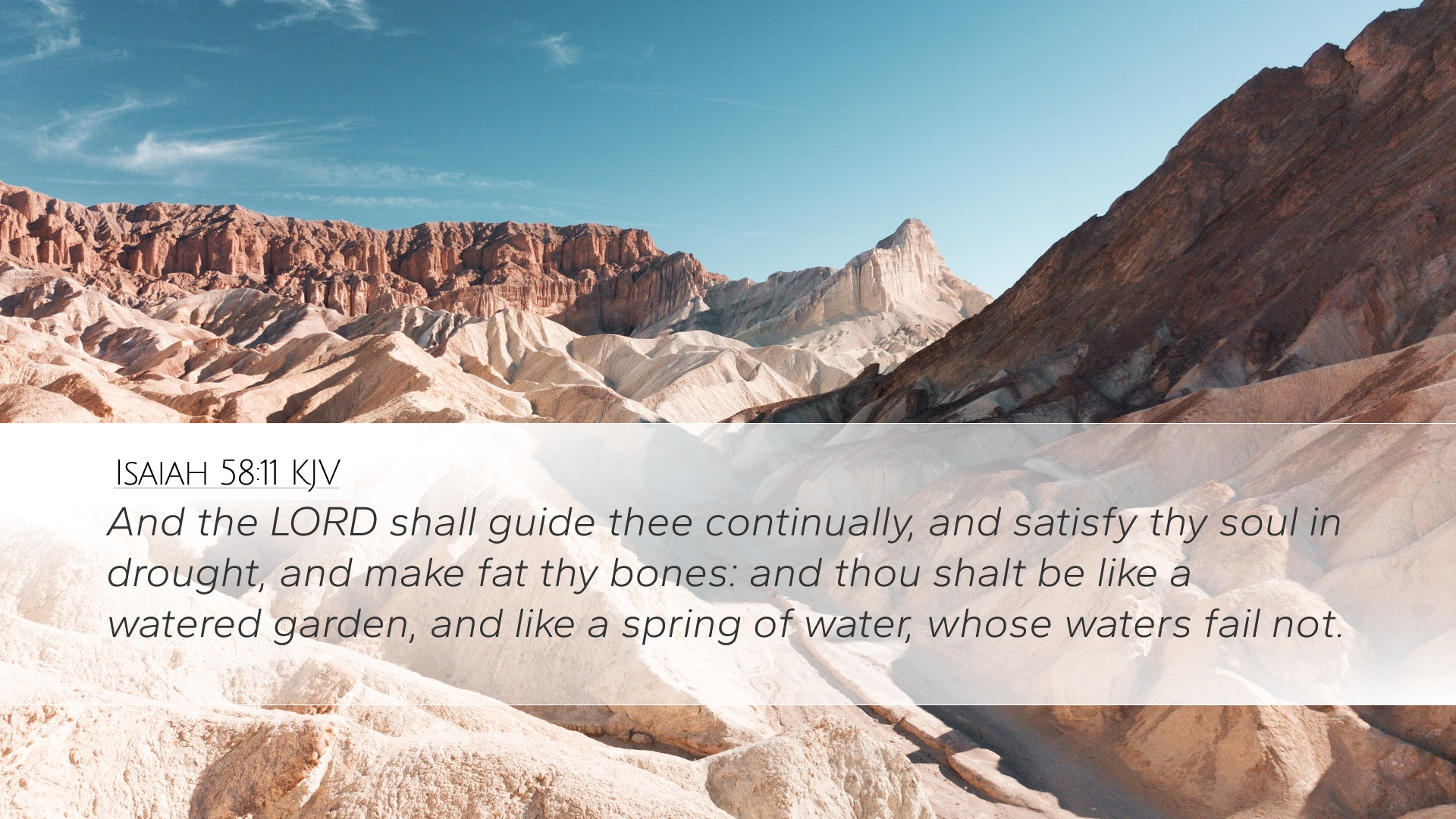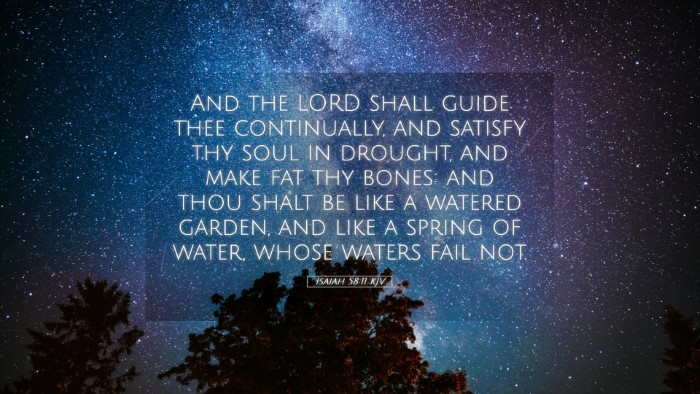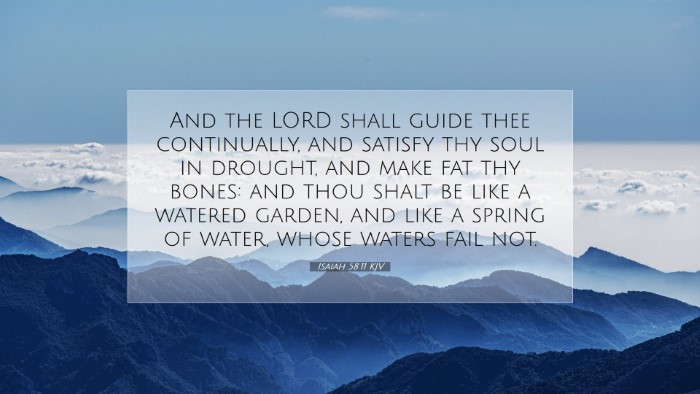Isaiah 58:11 Commentary
Bible Verse: "And the Lord shall guide thee continually, and satisfy thy soul in drought, and make fat thy bones: and thou shalt be like a watered garden, and like a spring of water, whose waters fail not." (Isaiah 58:11 KJV)
Introduction
Isaiah 58:11 presents a profound promise from God regarding His guidance and providence. The verse encapsulates themes of spiritual nourishment, divine presence, and the transformational power of God in the life of a believer. The insights drawn from various public domain commentaries highlight the richness of this passage, revealing its implications for pastoral ministry, theological reflection, and personal devotion. In the following sections, we will explore the key elements of the verse and its application based on the interpretations by Matthew Henry, Albert Barnes, and Adam Clarke.
Divine Guidance
One of the key components of Isaiah 58:11 is the assurance of continual divine guidance. As Matthew Henry notes, God's leadership is consistent; He does not treat His followers with neglect or indifference. Instead, He actively guides them through the challenges of life. This guidance is not a momentary intervention but a continuous process, reassuring believers that they are never alone on their journey. Albert Barnes emphasizes that this guidance comes with the promise of direction in difficult seasons, particularly during times of spiritual drought.
Satisfaction of the Soul
The latter part of the verse speaks to God's ability to satisfy the soul, especially in times of need. According to Adam Clarke, this satisfaction is indicative of both physical and spiritual fulfillment. In contexts of drought—both literal and metaphorical—believers can find refreshment and rejuvenation in their relationship with God. This idea resonates deeply with the spiritual desires of the faithful. The analogy of being a "watered garden" symbolizes flourishing and vitality that stems from divine nourishment.
Rich Metaphorical Imagery
The imagery employed in Isaiah 58:11 is rich with meaning. The comparison of the believer to a "watered garden" illustrates growth, beauty, and productivity. Matthew Henry points out that gardens are tended with care, requiring not only water but also nourishment and cultivation. Similarly, a believer’s life requires divine attention and sustenance to flourish. Additionally, the reference to "a spring of water, whose waters fail not" suggests an unceasing source of life and refreshment. This imagery serves as a reminder of God’s inexhaustible grace and mercy available to all who seek Him.
Spiritual Impact and Application
The implications of Isaiah 58:11 extend beyond personal assurance to a broader community impact. As believers experience God's continual guidance and satisfaction, they are called to be agents of renewal in their surroundings. Albert Barnes asserts that a nourished soul will naturally overflow to impact the lives of others, echoing Jesus’ teaching on being a light to the world. The transformation in a believer’s life can lead to a revitalized community—much like a garden that brings beauty and sustenance to the environment.
Promises During Drought
This passage also speaks directly to those facing spiritual or emotional droughts. The promise that God will "satisfy thy soul in drought" serves as a comfort, especially for those in ministry or leadership roles who may feel depleted. The commentaries by Matthew Henry and Adam Clarke encourage believers to look beyond external circumstances and to trust in the internal satisfaction provided by God. This trust brings about a resilience that is essential for enduring hardships.
Theological Reflections
The theological significance of Isaiah 58:11 lies in its affirmation of God’s covenant relationship with His people. The verse reassures the faithful of God’s commitment to guide and nourish them, reflecting His nature as a caring shepherd. Albert Barnes notes that this verse can be seen as a part of God’s promises valid for all believers, transcending the original audience of Isaiah. It holds a timeless relevance, reminding us that divine guidance and satisfaction are integral aspects of the Christian walk.
Conclusion
Isaiah 58:11 encapsulates a serene yet powerful promise from God to His people. It highlights divine guidance, spiritual nourishment, and the transformative impact of a soul connected to its Creator. This passage is both a personal encouragement and a communal call to embody the life-giving power of God in a world often marked by drought and spiritual barrenness. Reflecting on the insights from traditional commentaries, we are reminded of our role as conduits of God’s grace, demonstrating through our lives the beauty of a "watered garden" flourishing in faith.


